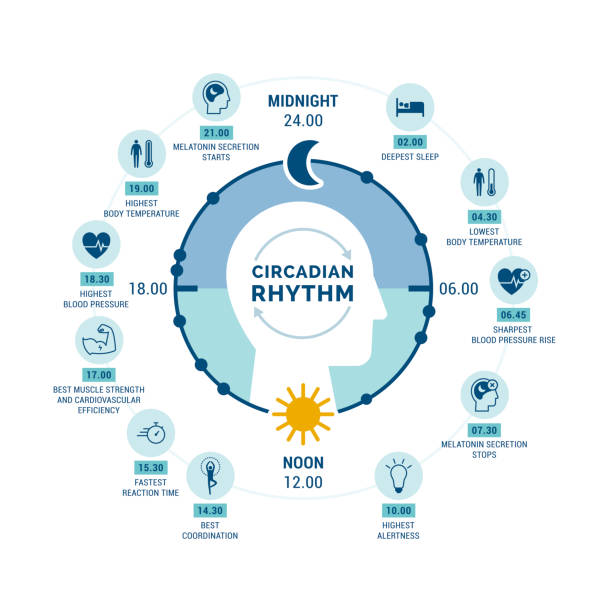(If you’ve arrived here and want to know a little more about me, Margaret, and the background to this project this 3-minute introductory read is for you. You can also see my other Posts in the Wellness Project series here. These are my personal views. I’m very open to learn and rethink things).
If you read my Week 2 Post - My Wellness List - (thank you!) you'll have seen that Sleep is on my list of wellness elements. I've chosen it as the element I want to think about first because it's so fundamental. If I ate Big Macs and stayed on the sofa watching reruns of Friends for 3 days I'm pretty sure that I wouldn't feel great, but the outside world wouldn't spot any difference. The lack of sleep moves the scale in a completely different way. Human performance is significantly impaired by just the loss of 1 night's sleep. Short and/or disrupted sleep over an extended period can cause significant long term harm.
I've decided to explore sleep in two parts. Firstly, in this Post, an overview of the science of sleep and its metabolic effect on our wellness. In the second Post, having hopefully made the case for prioritising sleep, I'll look at what I can all do proactively to optimise my sleep.
We include a workshop on sleep on the first evening of our NOURISH retreats. Our aim then is to encourage our guests to use the luxury of their 5 nights of self care on retreat to explore ways to improve their sleep with the help of some gentle techniques. The last thing we want to do is terrify our guests just before they set off for their first night's sleep on retreat, so we focus on what will be in the Part 2 Post, helpful, gentle ways to improve sleep. I'm afraid this Part 1 is not soothing. I think the science is fascinating but the implications of understanding the importance of sleep can be a bit overwhelming so take it gently.
My Sleep Gurus
My go to sleep guru is Matthew Walker. He got his degree in neuroscience from Nottingham University in the UK and his PhD in neurophysiology from the Medical Research Council in London. He subsequently became a Professor of Psychiatry at Harvard Medical School and is currently Professor of Neuroscience and Psychology at the University of California, Berkeley. I mentioned previously that I like to check out my sources of information!
Matt wrote the seminal best selling book "Why We Sleep: the New Science of Sleep and Dreams" published in 2017. The book is also available on Audible. I have listended to it but I also have the physical book which includes helpful diagrams such as the brainwaves of wake and asleep and the cycles of sleep. It's a pretty terrifying, science dense read but it sets out Matt's detailed and highly persuasive argument that good sleep is a non-negotiable biological necessity.
Matt is the global rockstar of sleep. For an engaging summary of his core messages try his 20 minute 2019 TED Talk, Sleep is Your Superpower, which has had over 20 Million views to date. He has his own podcast and has been a guest on many of the major podcasts in the wellness/lifestyle/performance space such as Tim Ferris, Huberman Lab, Steven etc. On Instagram he is @drmattwalker
Scientist Russell Foster, Professor of Circadian Neuroscience at the University of Oxford, is another eminent expert in the science of the body clock. His book "Life Time: The New Science of the Body Clock, and How It Can revolutionize Your Sleep and Health" published in 2022 is another scholarly yet accessible work which stresses the need for individuals to understand their own personal biological rhythms and the impact they have on our wellbeing.
I'm not a scientist and I don't pretend to understand all the scientific details related to the topic of sleep. However, if you invest even a moderate amount of time in exploring the knowledge Matt and Russell have amassed over decades dedicated to researching and studying circadian rhythms and sleep I think that, like me, you'll be persuaded that sleep is one of our most powerful wellness levers.
My Week 3 Take Aways
Evolution and Sleep
Superficially sleep looks like a waste of time particularly in our busy 24/7 western world. When I first started work in the mid '80s British Prime Minister Margaret Thatcher famously claimed that "sleep is for wimps". This begs the question, why hasn't such a seemingly useless (non-)activity that takes on average a 3rd of our lifespan been bred out of us through evolution?
The simple answer is of course that although it looks like nothing is happening when we sleep in fact this is the time when essential activities are carried out throughout our bodies including, critically, within our brains. Every species that has been studied to any material extent experiences some form of sleep or rest periods. Even though sleep makes animals vulnerable and humans unproductive animals, like us, are biologically programmed to do it anyway because the benefits of sleep outweigh the downsides.
The wonderous benefits of good sleep
Here is an overview of my understanding of the key benefits of good sleep for me.
Sleep isn't just sleep - when we sleep "well" we experience 5 phases of sleep over each sleep cycle of approximately 90 minutes. There are 4 non rapid eye movement phases ("nonREM" or "NREM" phases) either light or deep NREM. Our most profound sleep phase is the rapid eye movement or REM phase which is when we dream.
Memory - sleep before learning prepares the brain to be receptive to learning and making new memories. Sleep after learning moves our new memories from short term storage to a more secure long term home in our brains and so allows us to retain new things permanently. Yes, yes, yes for me. Good sleep definitely helps my focus when learning and improves my recall for things I already know. The inverse is true too.
Rest for the Brain - sleep allows the brain to rest. The periods of REM sleep are the only times during each 24 hour period that the stress-related chemical called noradrenaline (the brain's equivalent to adrenaline) is absent from the brain. So only periods of REM sleep give my brain rest from stress. I feel like I have quite an annoying, restless waking brain so anything that can help me truly deeply switch off is important to me.
Rest for the Body- sleep allow the body to rest. Even moderate disruption to sleep puts added pressure on our cardiovascular system causing a stress response by our sympathetic nervous system which, amongst other things, raises our resting heart rate and increases our blood pressure. I've been measuring my resting heart rate within a few minutes of waking for about 3 years on a fairly consistent basis (a habit initially prompted by Covid - I have an App and also one of those finger gadgets). Some events cause a clear elevation relative to my normal baseline resting heart rate (around 55) and one of these is a poor night's sleep which can add 10 beats per minute (or more). This isn't likely to cause me harm if it's just a rare occurence but over an extended period this elevated state of alertness could damage my health for example through cardiovascular damage.
Brain Housekeeping - relatively recently scientists have discovered, by studying electrical impulses in sleeping humans, that during sleep toxins built up during waking hours are flushed from the brain like a "wash cycle". Research is on-going into the interplay between poor sleep and Alzheimer's Disease, if any.
Weight management - sleep helps the regulation of many of our hormones. Disrupted sleep has an effect on hormones related to hunger and satiety. People who regularly experience reduced sleep have lower levels of leptin (the satiation hormone) and increased levels of ghrelin (the hunger hormone). They experience increased hunger, eat more and are more likely to be overweight or obese. Yes, that sounds right for me. When I'm well rested the vast majority of my plans and decisions relating to food are logical and healthy. Disrupted sleep (especially when caused by alcohol - more about this later) definitely negatively affects what and when I eat the following day. Male and female sex hormones are also sensitive to sleep quality and duration.
Overall metabolic health - it's been known since the 1930s that human biology is governed by an internal biological clock of roughly 24 hours, our circadian rhythm, which controls our sleep/wake patterns and many other biological processes. Scientists have more recently discovered that all the cells in our bodies also have such rhythms and even the bacteria which we host in our gut and elsewhere show circadian changes in their biology. So, looking after our sleep benefits nearly every aspect of our metabolic health and that of the trillions of microbes that live within or on us!
Personalised Sleep
This is a personalised wellness project so I'm looking specifically at the factors that affect me. Different stages in life, work/family pressures, physical environments and much more will affect how each of us sleeps.
As we age the quantity and efficiency of deep restorative sleep declines drastically compared to when we were younger matched by a decline in our ability to recall memories/information. However, if we are aware of this we can do things to increase our chances of quality sleep and its benefits for cognition (Blog Post Part 2 - coming soon). I've really felt the effects of poor sleep much more keenly as I've aged and particularly as a result of the sleep disruption caused by the menopause. I know that a night of disrupted sleep dulls my brain - affecting my focus, recall, mood and overall sharpness.
I'm self employed and these days I can control my day-to-day routine without too many external pressures. However, there were times in my life when the demands of my job meant that I worked very long hours, sometimes through the night, and I also travelled a lot for work meaning lots of disrupted sleep and jetlag. I wish I'd been more aware of the science of sleep back then!
Thanks for reading, Margaret
If you have any questions or would like any more information please do call or message us on + 33 (0)6 89 19 25 18 (we're on WhatsApp) or email margaret@manoirmouret.com.










